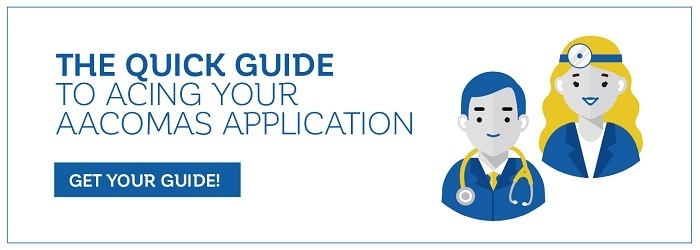
As a pre-med, I was grateful to shadow seven physicians in different medical environments. Some were primary care doctors, others were D.O. physicians. I even had the opportunity to learn alongside an orthopedic surgeon. People constantly say shadowing is important for resumes, applications, and medical school acceptances– and that’s true. But shadowing is more than just a resume builder. The life lessons I learned while shadowing helped shape my view of medicine and gave me an invaluable glimpse into a physician’s lifestyle.
<< READ: How Can I Continue Volunteering in the Age of COVID-19? >>
Medicine is More Than a 9 to 5 Job
I am not sure about everyone else, but before shadowing, I thought primary-care doctors had pretty standard 9am to 5pm jobs. Call me naive, but I heard this myth many times before college. Growing up, I imagined medicine being confined to a clinic, but today I know the doctor’s role continues after the clinic closes and further into learning about people’s lifestyles.
Shadowing helped me see how adaptive physicians are. Physicians I followed chose well-researched diagnosis plans for their patients, worked well within a team, and were health-care leaders. From watching these doctors, I began to understand which skills I needed to develop before applying to medical school. I learned more about medicine and being physician from 100 hours of shadowing than years of researching “what a doctor does.” My shadowing experiences helped me understand what I could expect as a doctor and I am thankful to the physicians who let me see their lifestyle up close.
Doctors are constantly reading, writing, researching, and collaborating. Being a physician is a demanding job that requires a dedication to life-long learning, human interaction, and often-long hours of either studying or working. Physicians have to get their licenses renewed, be on call, and respond to emergencies. I once stayed with a doctor after his shift for three hours to write detailed patient histories. There were days where I followed a medical team for 12 hours, went home to sleep, and did it again the next day to learn more. Another time I witnessed a doctor work on their birthday. Shadowing quickly revealed some of more challenging responsibilities of medicine. Now, I understand more about the daily sacrifices doctors make and know this is not your average 9 to 5 job.
Social Sciences Are Important
I may be a little biased because I was an Anthropology student in undergrad, but one of the most influential lessons I learned while shadowing doctors was the importance of social sciences. By having a general knowledge of many lifestyles, cultures, and generational norms, physicians can often tailor their medical care to each patient. My most influential mentor, Dr. B was a woman who inspired me to pursue an Anthropology degree despite its unpopularity among pre-medical students.
When shadowing Dr. B, I often saw how a patient’s environmental and biological factors are related. Once, a family brought their young child into the pediatric practice. Dr. B knew their rural housing was supplied by well water, and advised them to supplement their water source with fluoride drops. Since she understood her patients’ living situation, Dr. B was able to advise a way to reduce the development of cavities and other related diseases later in the infant’s life. Dr. B’s knowledge of social circumstances complemented her medical training. Now in medical school, we often review case studies of Americans whose lifestyle choices affect their health over time. So far, my medical training is parallel to my shadowing experiences and there continues to be a bridge between social realities and biological outcomes. This marriage between social science disciplines and medical knowledge is one of the major reasons I became interested in medical school.
Medicine is Patient-Centered
When shadowing I have asked doctors, “What is the most important aspect to learn before medical school?” Surprisingly, these physicians often respond with one central theme: Patient care. These experiences helped me witness the importance of developing an enjoyment for continuous patient interaction. On television, doctors are usually portrayed as the center of medicine, but from my shadowing, I know patients are the real focus of the medical world. Everyone has a story and doctors try their best to use a patient’s history to diagnosis and treat them. We saw patients from different genders, races, and zip codes and helping every single one was the main focus of the medical teams I met. My advice for anyone wanting to become more like the doctors I shadowed is to get ready to commit your life to serving others and often even putting their needs before your own. The sacrifices I witnessed for patients’ health were all worth it to the physicians I shadowed and I anticipate patient-centered care to continue making differences in American lives.
*Image Designed by Freepik
Ashley R. Peterson is a medical student at the Philadelphia College of Osteopathic Medicine. – Georgia Campus. She received her BA in Anthropology from the University of North Carolina at Charlotte. Her blog, “Daily Medicine Blog” revolves around medicine, travel, and daily life at www.drashleyroxanne.com.
Related Resources:
• Navigate the Med School Maze [Free Guide]
• D.O.s for Diversity: Ashley’s Osteopathic Med School Journey
• Allopathic vs. Osteopathic: Which Med School Program is Best for YOU?



